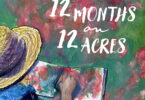Within the world of controversial figures of the past, a life of drama and scandal that stands out among the rest is the brief and brilliant life of Oscar Wilde. In Oscar: A Life, Matthew Sturgis sets out to explore the path of Wilde’s life and art, from childhood influences to his firm footing within the clouds of aestheticism, and how, after years of withstanding public ridicule with little more than a characteristically witty brush-off, he was brought low by a scandal few could recover from.
Oscar: A Life reads as close to a firsthand account as a biography can, with a narrative so detailed, organic, and smooth, it felt as if I had stepped into Wilde’s life to observe from the eaves. In the decades since the last major Oscar Wilde biography, a trove of new material has come into play, allowing Sturgis to pull back the curtain on Wilde’s delicately arranged affectations and shed new light on the social, political, artistic, and historical influences that impacted Wilde’s work and life. From his artistic struggles and triumphs to tumultuous friendships and romances, the complexities of an incredibly full life are woven together flawlessly, allowing for the most detailed, intimate view of Wilde’s life possible.

Art was the axis of Wilde’s life; without exception, every aspect of his life was influenced by his opinions of art. From the society he kept to the exquisite specificity with which he expressed his aesthetic leanings, art was the foundation of his being and the voice that spoke most clearly to him. He viewed everything through the lens of art, dismissive of what didn’t please him yet eager to see beauty, within the ugliest parts of life, through his relentless romanticism. Even when his infamous relationship with Lord Alfred Douglas that led to the demise that perhaps everybody but he saw coming, Wilde couldn’t stray from romanticism. He saw himself as something of a martyr, his exceptionally horrid downfall and punishment reduced to the challenge of his great role in the larger scheme of his perfect and forbidden love of Douglas.
While Wilde may have projected the image of having sprung into life fully grown with sophisticated tastes and scathing wit—and may have wanted us to think so—he wasn’t. Born to revered Irish poet Speranza and nurtured amongst some of the biggest names in literature, Wilde’s greatest influences included idealized ancient Greek culture and the likes of Swinburne and Baudelaire. Devoted to the philosophy of Art for Art’s sake and a firm believer in the worthiness and depth of subjects deemed “shallow” by wider society, Wilde was a pioneer of the Aesthetic movement. As such, he was devoted in the deepest sense to his ideals of beauty and art and sought to express them in his life, regardless of public opinion. Naturally, his hyperawareness and calculation of his image were met with accusations of affectation. And it was affectation—but also completely genuine. Wilde’s personal expression was true to his every whim and ideal, while also aiming to elicit a reaction. Genuine affectation. Paradoxical, no? Such was the life of the leading aesthete of the day.
Though it is common knowledge that Wilde was hardly adored by most of his peers, Sturgis reveals just how much he was disliked and disrespected by the public with fantastic detail, exemplifying the joke he had become to many of London and literature’s elite. In allowing himself to earn his initial fame by playing into the public’s idea of him, Wilde became a victim of the culture he had helped foster. The instability of his life was nearly constant, swinging from lows of borrowing money from friends just to survive to living well in the wake of a brief success. His endless efforts to have plays staged or poems published were often met by unkept promises or denials. Even when successful, he was met with harsh criticism and accusations of borrowing directly from his greatest influences from those who refused to consider him anything but a silly aesthete. After letting the press make a joke of him consistently for years to gain notoriety, he had to fight to be seen as the talented poet, playwright, novelist, and uniquely intelligent thinker and conversationalist he was. In his own life, Wilde never seemed firmly established as anything but a personality.

In exploring Wilde’s life, Sturgis draws sympathy from the reader, not for just Oscar himself, but for those who perhaps didn’t get the best of him in his desire to live according to his ideals. His life was flawed in deeply complex ways and it appears he let little get in the way of his amusements, his inclinations often leading him down questionable paths. With periods of excessive drinking, spending, and parades of young boys, Wilde wasn’t always thinking about how his actions affected his family. Though loving and not unkind, he often lived selfishly, applying his “Art for Art’s sake” motto to his life in a more direct way than he perhaps should have, adopting an attitude of “Oscar for Oscar’s sake.”
Wilde’s end was brought about painfully early, at age forty-six, nearly alone after spending a mostly unsuccessful few years exiled in Europe. Unable to focus on writing, he’d been drinking steadily by the time the medical problems arose. Though a devastating death for so incredible and talented a person, his few remaining friends didn’t see how his life could become something happy again. It was their opinion that Oscar’s death was perhaps for the best.
Oscar Wilde was a brilliantly talented artist who never failed to be true to himself. This astoundingly in-depth biography, by Matthew Sturgis, takes readers beyond the veil of Wilde’s facade and encourages us to get to know the man behind the legend, cultivating an understanding of the environment, influences, and inclinations that could breed the likes of Oscar Wilde. Though my initially simplistic opinion of his golden presence within the history of literature has been challenged and expanded by Oscar: A Life, Wilde’s presence is no less golden because of it.
For more information about Madison Arsenault: houseofcadmus.com – Photographs by Madison Arsenault





Leave a Comment